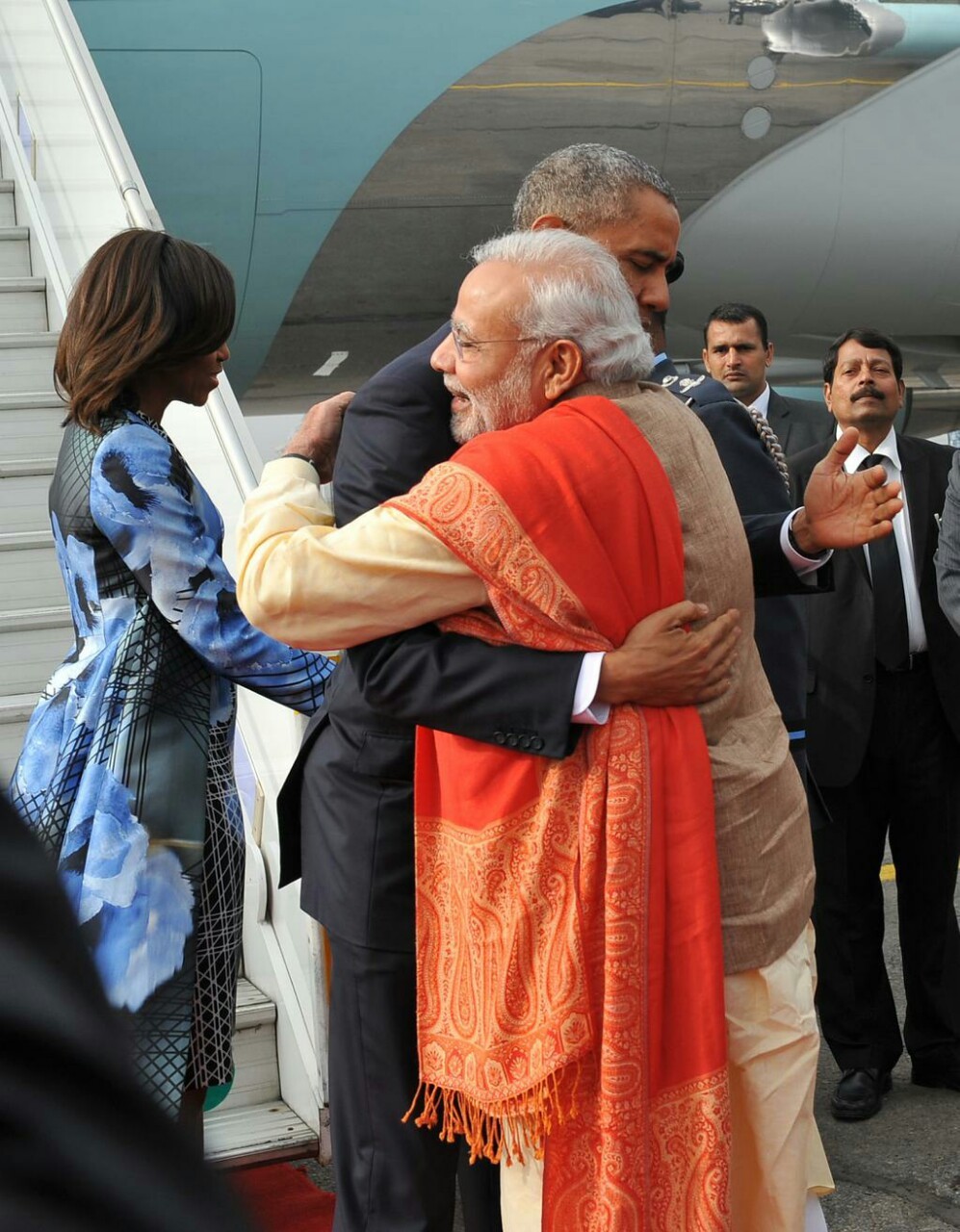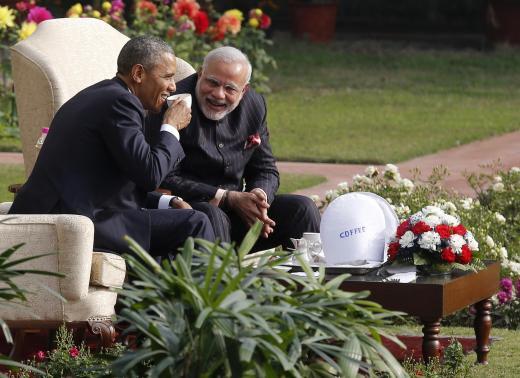Indian Students React To Obama's India Visit

Over the course of the three-day visit, the two leaders arrived on several key agreements and succeeded in revitalizing ties between the two largest democracies of the world. The visit alone made for a historic event, as it marked the first time that an American president had traveled to India twice, and the first time a president had been crowned the chief guest at the Indian Republic Day parade.
Relations between the U.S. and India have been complicated in the past. Indian leaders have always been reluctant about openly embracing America as a chief global partner, following a policy of non-alignment since the days of the Cold War. The U.S., for its part, has historically favored pursuing Pakistan as a strategic partner in the region. Bilateral relations between the two nations reached a high point when George Bush and Manmohan Singh signed the Civil Nuclear Cooperation Agreement in 2006, but the fine details of the agreement were never finalized and its implementation has been stalled for several years.
READ MORE: The Rohtak Sisters: Why India Needs Feminism
The personal chemistry between Obama and Modi helped usher in a new era of cooperation. "We are committed to moving towards full implementation," assured President Obama in relation to the civil nuclear deal.
In addition, he has promised $4 billion in investment to India and a 10-year defense framework has been drawn out. Obama also declared his support for India's bid to become a permanent member of the UN Security Council, and a hotline has been established between the two nations. Over a cup of tea, the two leaders discussed their mutual anxiety over Chinese dominance in the region. This resulted in the signing of the "Joint Strategic Vision for the Asia-Pacific and Indian Ocean Region."
Toward the end of his stint in India, Obama delivered a speech at Siri Fort Auditorium in New Delhi, in which he stressed the importance of good relations between America and India. He took the opportunity to point out what he sees as the two biggest possible challenges to India's success in the future - religious harmony and women's rights. Obama's references to religious harmony were interpreted by many as a warning against the extreme elements of the ruling Bharatiya Janata Party's Hindu nationalist leanings.
SEE ALSO: Doses Of India
Obama's sentiments were recently reiterated by his nominee for Secretary of Defense, Ashton Carter, during his confirmation hearing."Strengthening the U.S.-India defense relationship was a priority for me as Deputy Secretary of Defence and, if confirmed, I will continue to prioritize the steady growth of this relationship," he said.

So how do Indian students feel about this? Sidhant Seth, a freshman double majoring in Engineering and Music Industry at USC, describes the trip as a "diplomatic victory that has fundamentally altered the nature of Indo-US relations."
As an Indian student studying abroad at an American university, Seth perceives the developments as a "welcome move," with a "natural alliance going forward in the 21st century."
Ankit Agarwal, a business student at NYU, had a more skeptical take on the events. "The trip was high on symbolism and rhetoric," he said. "And it will be interesting to see how the ambitions of Obama and Modi translate into successful policy."
Agarwal, who said his skepticism had a lot to do with the failed promises of the Bush-era civil nuclear deal, added, "I hope that the promises made by both parties are actually followed through and implemented within the timescales imagined."
Nitin Goyal, a junior at the University of British Columbia, said he was "waiting to see what the Chinese and Pakistani reactions to these events will be."
The apparent camarederie between Obama and Modi "will lead to much anxiety in China and Pakistan," he said.
Goyal is especially concerned about the implications of this partnership on India's bilateral ties with China. "I am curious to see Modi's game plan when he visits China in May," he said.
Reach Staff Reporter Adi Radia here. Follow him on Twitter here.



